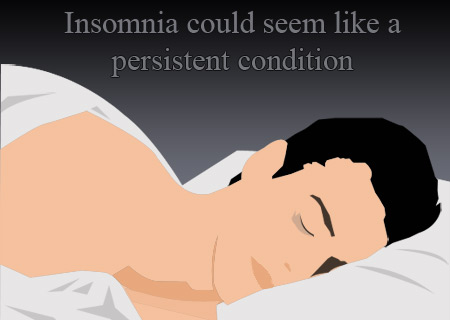
Many people may find themselves unable to sleep efficiently at night. This is a condition which is not restricted to only some people, a huge number of people experience insomnia.
Insomnia can often turn out to be a chronic problem. More than half of the people with insomnia continue going through this condition for as long as a year, or may be even three years. This revelation was made by Charles M. Morin, PhD, of the Université Laval and Centre de recherche Université Laval -Robert Giffard, Québec, Canada, and colleagues.
Various factors like being a female, feeling of anxiety or depression, increasing age, etc. have been traced to insomnia. The study investigators state that, “Approximately 30 percent of adults report symptoms of insomnia and 6 percent to 10 percent meet diagnostic criteria for an insomnia disorder.â€
For the purpose of the study, approximately 388 adults around the age of 44, were examined for insomnia persistence, remission and relapse. These subjects were evaluated for a period of about three years. They were all classified into one of the three groups; individuals with an insomnia syndrome, individuals with insomnia symptoms and individuals with good sleep.
The investigators found that, “Of the study sample, 74 percent reported insomnia for at least one year and 46 percent reported insomnia persisting over the entire three-year study.â€
It was discovered that the course of insomnia was more likely to be persistent in women, older adults and the ones suffering from insomnia syndrome. It is also stated that while about 54 percent of the subjects went into insomnia remission; about 27 percent of them experienced an insomnia relapse.
It was noted that, “Individuals with subsyndromal insomnia [insomnia symptoms] at baseline were three times more likely to remit than worsen to syndrome status, although persistence was the most frequent course in that group as well.â€
It is stated that the study presents preliminary evidence for better understanding the basic process of insomnia. Having said this, they also state that a more detailed analysis is required in order to verify these results.
They state that a better understanding of the long-term course of persistent insomnia may prove to be essential for the development of effective prevention and intervention programs. Such programs may be useful for effectively avoiding the long-term adverse effects of insomnia.
Their findings are published in one of the journals of the JAMA/Archives, the Archives of Internal Medicine.
